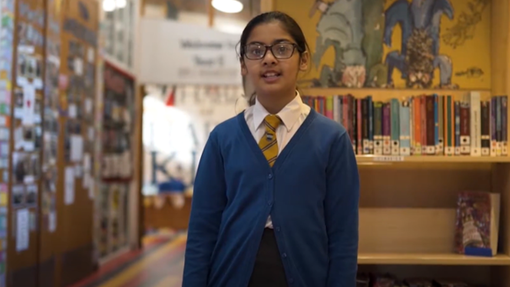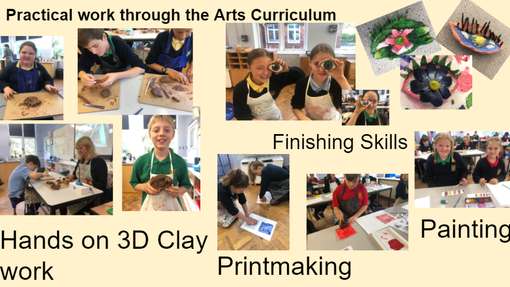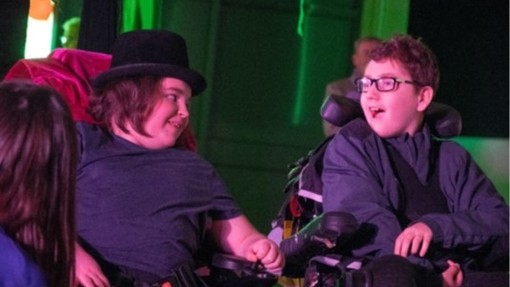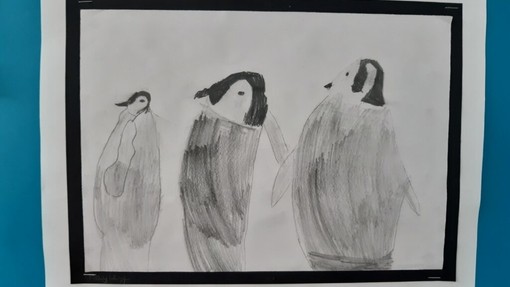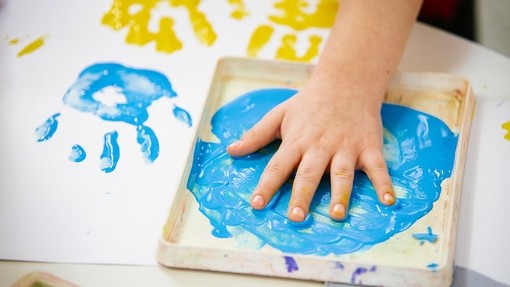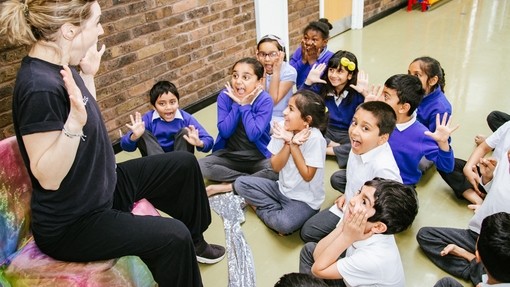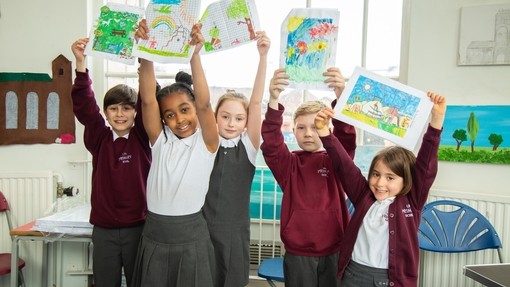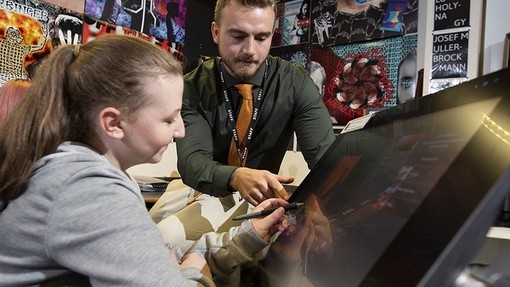
My #Artsmark20 story: A Platinum Perspective on Partnerships and Community Outreach
The ethos of the Bolton School Foundation seeks to maximise the potential of each pupil in our care. Commitment to Artsmark development is a measure to celebrate, enrich and extend the cultural offer available to our students and our community. Academic success is important to us but so too is character development, encouraged by delivery of a wide range of activities and experiences, including community engagement.
Our understanding of character education is closely linked to Bill Lucas and Ellen Spencer’s five Creative Habits of Mind – imagination, intellectual curiosity, collaboration, persistence and discipline. These virtues are explored in the context of personal and collective well-being, acknowledging that understanding self and the world, and the opportunity for meaningful self-actualisation and social responsibility, are key to living a happy and fulfilled life.
Our creative community partnerships seek to foster opportunities for young people to come together to explore what is creatively and culturally important to them in their local context, nationally and internationally, whilst simultaneously fostering skills that promote youth agency and action, as well as establishing live outlets for this work in our town and further afield.
Our Artsmark journey
Our Artsmark journey to date has been transformational for our setting. It began with taking stock of what we did well in terms of arts and culture provision, working within and between departments to strengthen this – including introducing an universal Arts Award offer for our pupils – and then broadening our focus to the fullness of our school community.
As a result, we have worked closely with creative alumni in many different ways: from masterclasses and interviews, through to guest direction of school shows, contributions to our cultural zine, creative industry networking events and internships. We also work with our Parents’ Associations to foster support for performing arts events and created an open art exhibition in which pupils, family and friends of Bolton School, past and present, can exhibit.
Collaboration with local and national organisations is one way we have extended the breadth of our offer. Locally, we have worked with theatres, film companies, museums, galleries, concert venues, universities and lots of freelance creatives. For example, we participate in the Royal Society of Arts’ Pupil Design Awards, a free national opportunity to focus pupils upon real world problems and creative problem solving. In 2021, our delivery of this project introduced pupils to conversations with creative experts in digital production, architecture and decolonisation of culture as part of their design processes.
Maintaining Standards and Evolving Innovations
In lockdown we commissioned a range of digital projects with artists. The school offered a public lecture series ahead of pandemic, and digital innovation opened up further opportunities. For example, we offered public creative writing workshops and a related poetry competition for schools across Bolton with poet Andrew McMillan via digital platforms.
In this period, we also worked with Manchester International Festival’s community engagement team as a Specialist Leader of Cultural Education with Curious Minds (North West Arts Council Bridge Organisation). The focus of the shared learning between schools and cultural organisations was careers and skills. Again, the pandemic caused us to pivot in a meaningful way. What followed was a digital co-creation pilot with young people across Bolton’s secondary schools informed by MIF’s festival engagement model and signature pieces such as ‘Festival In My House and Yours’.
Data from baseline questionnaires, taken in our school and other Bolton secondary schools, told us that young people had a lack lustre relationship with traditional cultural settings and a habit of accepting what they should view as culturally important, passively and without question. Action research – employing creatives ways to listen to and explore ideas with our pupils – has become habitual practice.
Given the unusual circumstances, we met via Zoom over a number of months with a changing gallery of creative practitioners to support the process. We learned about what mattered to participants, about their home backgrounds and neighbourhoods, and let that information guide our creative production. We were practically and philosophically focused upon the home-life, heritages, identities and interests of the cohort, and after a period of cultural sector exploration and upskilling, opened the process and outcomes of the project to youth governance.
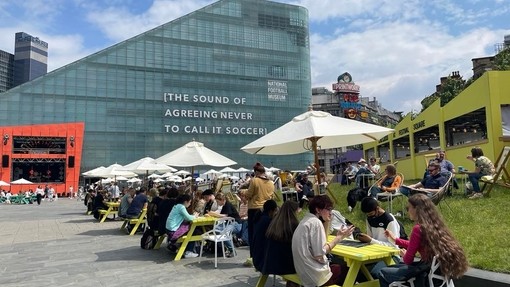
Schools and Arts Organisations Together: Community Arts Practice and Creative Sector Careers
Outreach projects are a natural focus of our continuing Artsmark journey. Where we seek applied creative and cultural opportunities, it is natural to extend the offer that is established to young people across the Bolton Borough; the aim, after all, is to generate relevant, live projects with local impact.
We are soon to begin a second iteration of our co-creation project, offering returning young people and new faces the opportunity to explore the cultural ecology of the North West, to commission and co-design arts projects for their town and to advocate for their interests in the town’s cultural forums. The Creatives Now cohort of 2022 will contribute directly to Bolton’s Cultural Strategy and 2030 Vision.
Culture does not happen in silos, it is a complex web. Creative schools partnership practice is a hugely important component of a happy connected community and a model of the agile forms of creative and cultural learning that can invigorate diverse, inclusive and challenging educational practice in general. The success of creative learning and partnerships is, for educators, creatives and the gatekeepers of cultural organisations, a matter of reconceiving our relationship with cultural capital. With concerted work to reimagine structures of access and inclusion, together, the cultural offer can be strengthened for all children in our communities.
Top tips for School Outreach and partnership working
- Connect with your Regional Bridge Organisation’s training opportunities. Bridge organisations also support partnership synergies between Artsmark schools and Artsmark Partner organisations.
- Connect with your Local Cultural Education Partnership. You will find lots of varied organisations sat around the LCEP table, opening creative project possibilities across different sectors.
- Use the excellent partnership road maps available from Bridge Organisations. These guides encourage the sharing of expertise between cultural organisations and schools, favouring co-design over off the peg packages. Access A New Direction’s ‘Powerful Partnerships Framework’ here.
- Become a Cultural Learning Evidence Champion. The RSA’s handbook encourages users to get to grips with what is called the ‘evidence agenda’ in arts and cultural learning. Experiment by starting out with ways to creatively gather information from young people to inform the projects that you co-design with them. Gather information as you go to feed back into the evolution of a project.
- Consider if your enrichment projects could be scaled up to accommodate pupils from other schools.
- Consider if your enrichment projects could include a public offer. E.g. pupils work with an artist to design and deliver a workshop.
- Use project-based learning opportunities to foreground creative skills. Imagination, intellectual curiosity, collaboration, discipline and persistence are all prominent features of self-led projects and pupils master these habits by sharing the product.

